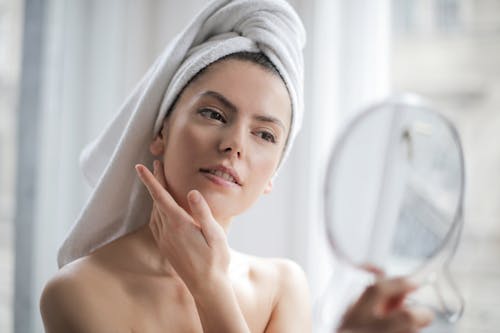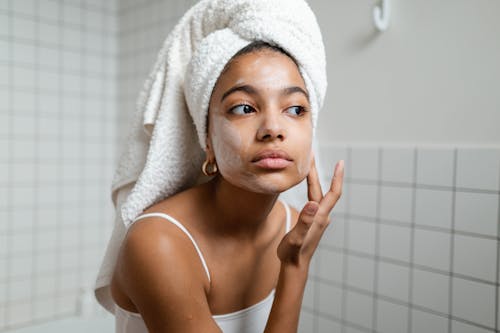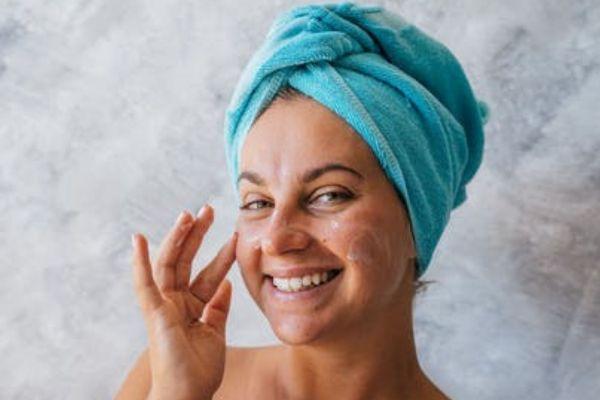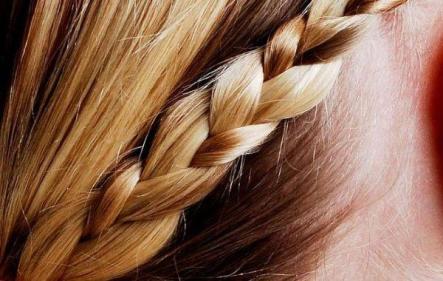You’re casually scrolling through TikTok, reels or whatever your preferred social media poison and all of a sudden amongst the recipes and makeup tutorials, up pops the latest viral skin trend.
They’re usually called something cute like ‘glass skin’ or ‘sun-kissed blush’ – which is why the trend ‘slugging’ has us more than a little apprehensive to try it.
A K-beauty skincare trend, slugging isn’t nearly as gross as it sounds. It’s a method used in Korean beauty to seal in moisture, treat dry skin and improve skin’s elasticity. The trend involves covering your face in some sort of thick, petroleum-based products after putting on your moisturiser and keeping it on overnight to lock in all the hydration.
Doesn’t sound that controversial or weird, despite its awful name, right? Well the beauty world is divided by the trend, even though its been around far longer than a lot of modern skincare tips. Searches for ‘slugging’ have gone up by 319% over the last year according to LookFantastic’s new trend report and has been endorsed by the likes of Skincare by Hyram and lots of other beauty gurus. Those knocking the trend however, may not be the right candidates for slugging – because it doesn’t work for everyone.
Who is slugging for?
Slugging is ideal for people with dry, super dehydrated, photo-damaged or post-menopausal skin is all skin that needs to try out slugging. If your skin loses moisture easily, or finds it difficult to retain in the first place, this could be a game-changing method for you.
It’s also recommended for those struggling with eczema outbreaks and dry patches everywhere on the sin – not just the face. If you have an outbreak of eczema or have perpetually dry elbows or knees, using your moisturiser and sealing it in with the slugging method can handle the stubborn dryness.
This ‘selective slugging’ method can also work for those hesitant about slugging, or unsure if the practice is for them. Slugging on areas of thin skin, like around the eyes or lips can be a huge help for the delicate skin there, helping it hold onto moisture it might otherwise lose without blocking off the rest of the face.

For those with oily or sensitive skin, approach slugging with caution -it’s not a great option for these skin types. For oily skin, slugging has major potential to clog up your pores and cause more breakouts with its heavy sealing – you skin needs to breathe and therefore needs lighter moisturisers than petroleum-based ones. However, oily skin can still go through dry patches if your skin has a reaction or isn’t receiving sufficient hydration. You can try either selective slugging, or use a light face oil to seal in your moisturiser, one that has breathability and won’t have your skin freaking out.
For sensitive skin, slugging can seal in a irritating product or react badly with a product, making the reaction afterwards far worse as if keep the skin trapped with the irritating ingredient. Like oily skin, try to keep to selective slugging and if you must try slugging, use an oil and patch test first
How do I try slugging?

Slugging - regardless of skin type – should be done sparingly.
Before slugging, you should follow your normal evening skincare routine, double cleansing your skin and using your usual hydrators, like moisturisers or deeply hydrating humectants, like hyaluronic acid. This all needs to be done before applying your petroleum products, so as not to seal in dirt and only trap moisture. You should wash everything off with your morning cleanse, as slugging too often for too long can cause the skin to become dull and unable to shed its dead skin layer.
Cell turnover can be effected if you’re using a heavy occlusive like Vaseline to often. The skin can’t breathe and its self-regulation can get disrupted, meaning it may end up becoming even drier than before, as it becomes unbalanced and unhealthy.
If you’re not a fan of Vaseline, there are other options out there, usually found in heavier products, like CeraVe’s topical creams and ointments. Ingredients like glycerin and ceramides can all help to keep dry skin moisturised and glowing.





